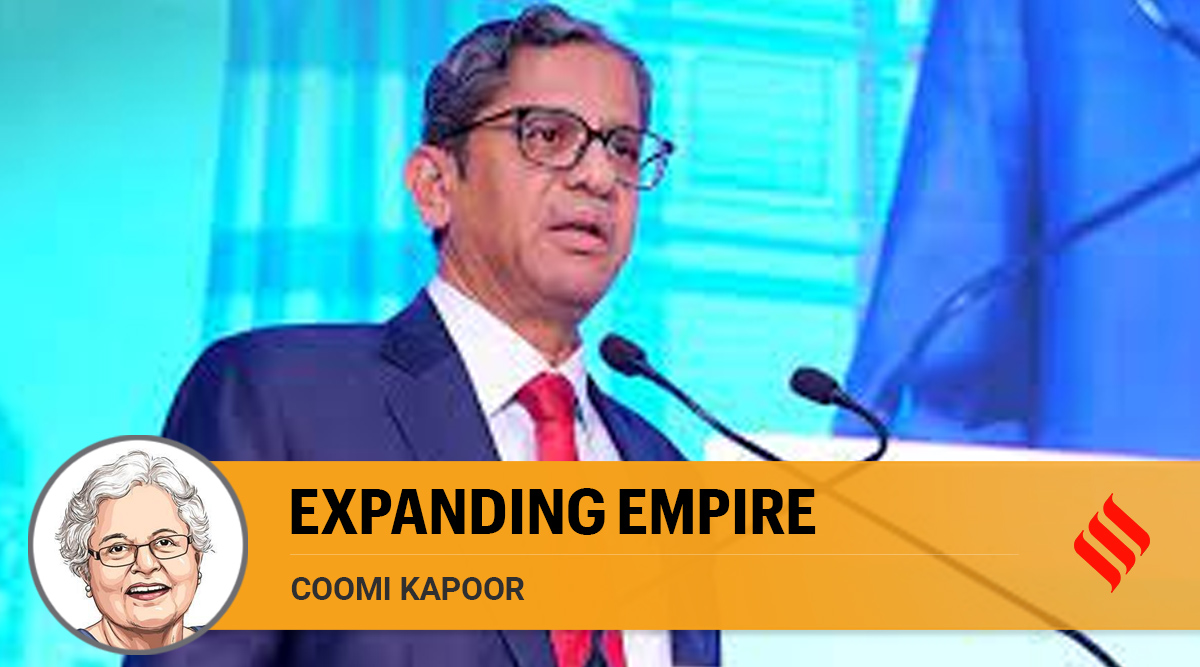 N V Ramana, former Chief Justice of India,(File Photo)
N V Ramana, former Chief Justice of India,(File Photo)A suggestion by N V Ramana, the just-retired Chief Justice of India, this April – that an independent umbrella institution overseeing all investigative agencies, such as the CBI, SFIO, ED, etc. should be created by a statute – sent ripples through the top echelons of security and investigative agencies. Since there is already a Chief Vigilance Commissioner to clear appointments, the proposed new body would presumably have overarching control over all investigations. The buzz is that ED Director S K Mishra would be the most likely candidate to head the proposed agency. Mishra took charge as ED Director on November 20, 2018, for two years and is now on his second extension. Under his watch, the powers of the ED were enhanced through amendments to the Prevention of Money Laundering Act in 2019. The ED is now empowered to search premises, make arrests and seizures and attach property without an FIR based on a predicate offence. Earlier, the ED could not act without another investigative agency having first registered an FIR and undertaken due diligence of an investigation to confirm proceeds of crime.Even in terms of space, the ED has expanded exponentially. From a grimy office on the fourth floor of Lok Nayak building, it now operates from the spacious new Pravartan Bhavan, on Abdul Kalam Road.
New/old alliance?
A fortnight ago, the TDP’s Chandrababu Naidu met PM Narendra Modi at the same time as his son, Nara Lokesh, met Amit Shah. The BJP is keen to join forces with the TDP since it has fallen out with Andhra Chief Minister Jagan Mohan Reddy. The TDP has undertaken sample surveys which put the BJP’s vote share in the state at a mere 3 to 4 per cent. But the BJP argument is that a TDP tie-up with the ruling party at the Centre would be a tremendous force multiplier. Poll surveys suggest that while a BJP alliance would be of little consequence to the TDP in an Assembly election, it would considerably boost the TDP’s vote share in a parliamentary election. An announcement, during the coming festival season, of the TDP joining the fast disintegrating NDA is possible.
Their way or highway
Subscriber Only Stories
Nitin Gadkari may have been formally removed from the BJP’s parliamentary board this month, but he has been out of the party decision-making process much earlier. During the pandemic, parliamentary board meetings were virtual and Narendra Modi, Amit Shah and J P Nadda took the calls. Gadkari’s irreverent humour that is seen as targeting the powers-that-be, and the fact that he spends most of his time outside Delhi, indicated that he was well aware of his diminished status. The RSS’s powerful No. 2, Dattatreya Hosabale, a Modi man, is not as well disposed towards the Nagpur boy as RSS chief Mohan Bhagwat. The real question is, will Gadkari be able to retain his ministership till the next election? His spectacular performance in expanding the network of highways and roads cannot be easily brushed aside.
Gujarat concern
The Congress is concerned about its declining fortunes in Gujarat, especially with the rise of the AAP. According to a recent survey, in Saurashtra, the contest is between the BJP and AAP, with Congress in third place. If Gujarat sends a signal that the Assembly election is no longer bi-polar, the Congress fears that the trend would spread to Madhya Pradesh and Rajasthan. At a meeting in Delhi, a Gujarat Congress leader from a prominent dynasty protested that unlike the last Assembly election, when Rahul Gandhi pulled out all the stops to convert the contest into a cliff hanger, this time, the Gandhi scion has not visited the state though elections are due in December. He reminded Rahul that during the 2017 polls, he had promised Gujarat voters that he would return every two months. Organising secretary K C Venugopal criticised the dissenter for speaking out of turn, but the latter held his ground, adding that the real problem was that people shied away from telling Rahul the truth. An MP supported him.
Caste conundrum
Nitish Kumar’s decision not to make Upendra Kushwaha a minister could prove a costly mistake. Nitish believes that Kushwaha has been compensated enough — he is president of the party’s parliamentary board and a member of the Bihar Legislative Council. Besides, Nitish does not want to upset his new/old Yadav allies. Kushwaha denies that he is sulking and claims his mission is simply to “save the socialist ideology’’. Kushwaha, a seasoned party-hopper, believes his advantage is that his community forms some 7 to 8 per cent of the state’s population, while Nitish’s Kurmi caste comprises a mere three per cent. But Nitish has been assiduously wooing OBCs and EBCs for years and believes that Upendra is no longer the unchallenged leader among Kushwahas.